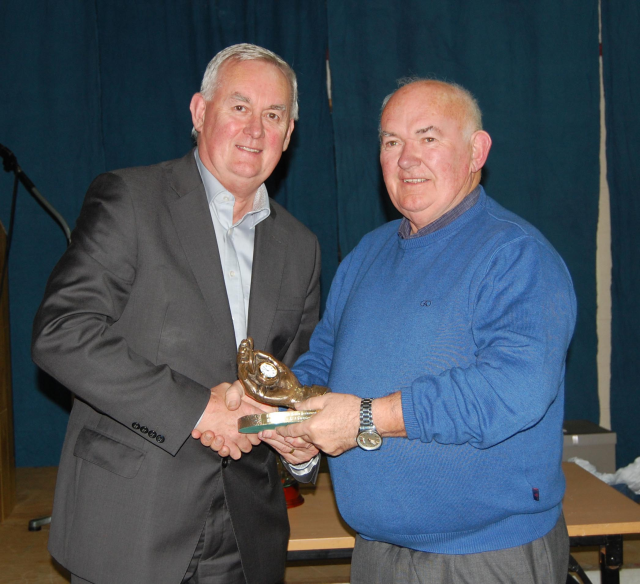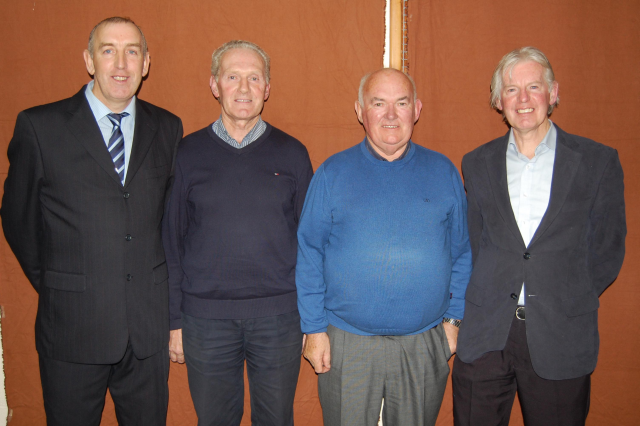

 |
 |
| Paddy Coleman (right) receiving a presentation from fellow Youghal man Christy Cooney, former President of the GAA | Paddy Coleman (third right)
pictured with Martin Drake, Youghal AC, Chairman, East Cork Division -
Athletics Division, along with former international athletes Richard
Crowley and John Buckley both St Finbarr’s AC |